Webinars
Reducing the Commercial Risk of Hydrogen Projects Leveraging a Digital Twin
FREE | October 27, 2022
REGISTERAs the process industries transition towards new sustainability and decarbonization paradigms, digitalization plays an essential role for companies that intend to reach environmental targets and remain profitable. The tradition of having data embedded in physical documents has been replaced by the underlying data being stored digitally, which becomes the first step to build a reliable Digital Twin. By combining digital data with models and analytics, teams are empowered with proper and timely decision-making, driving operational excellence toward a more sustainable future. This webinar will use digital twin technology to illustrate the lifecycle of a renewable hydrogen plant from conception to production to deliver a cost-effective production solution. The webinar will also outline the development of digital tools and the necessary new technologies required to address the burgeoning needs of industry as it drives towards sustainability goals supporting net-zero manufacturing and the energy transition.
*Learn more about how Digital Twins are transforming the Hydrogen industry
*See how to make better use of your engineering and operating data to improve sustainability
*Explore how integrated digital solutions can reduce your commercial risk for new projects

Process Analytics 4.0: A Turnkey Solution for Moisture Analysis
FREE | October 26, 2022
REGISTERMany industrial processes occur in difficult-to-access reactors, which are at times, under extreme pressures and/or temperatures. They may also use aggressive chemicals that may be acutely toxic and carcinogenic. At the same time, monitoring the moisture content of these substances is critical to ensure efficient drying, to produce a high-quality starting material and reduce overall operating costs. In practice, samples of the chemicals have to be taken from the process into the lab to be analyzed for moisture by coulometric Karl Fischer titration (KFT), but doing this can be unsafe and restrictive.
Join us during Part 3 of this four-part webinar series as Elena Hagemann and Andrew Tatsch demonstrate a new Process Analytics 4.0 enabling system. Using automation, the sample analysis of the primary method (KFT) is combined with Near-Infrared (NIR) spectral collection in real-time, resulting in a more accurate model with lower detection limits. Using this combined method, moisture measurements can be calibrated down to approximately 5 mg/L and delivered as a turnkey solution for installation in pipelines and reactors.
Catch up with our experts during the live Q&A forum at the end of this presentation and get your questions answered.
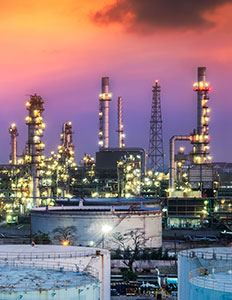
Applying AI to Materials & Chemicals R&D
FREE | October 19, 2022
REGISTERAI and smart data management accelerate the discovery and development of sustainable, high-performing materials, chemicals, and manufactured products.
However, domain-specific challenges often arise when applying AI to product development and R&D data, which is often complex, sparse, an expensive to generate. In this webinar, we’ll share how organizations have overcome these challenges to successfully accelerate product development, develop more sustainable products, and improve customer responsiveness with an AI-guided approach to R&D.
In this webinar, attendees will:
• Understand how AI can be used in product development without the need for code
• Learn how expert knowledge can be used to improve the predictive accuracy of models
• See an end-to-end case study of AI applied to a sustainable product development challenge
• Learn how materials & chemicals companies are rolling out AI-guided workflows across their business units
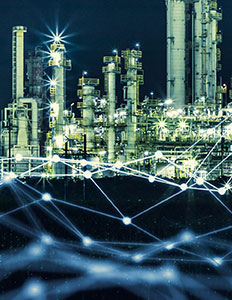
Solids Flow Stoppages 101
FREE
REGISTERSolids handling problems are common throughout many industries, thanks to a lack of focus around bulk solids training, and common trial-and-error approaches. 70% of all products contain at least some ingredients handled as bulk solids, and studies have shown problems around bulk solids handling has led to higher production costs and lower product quality.
This webinar will provide insights into common flow problems, and offer general steps on how to solve them.

Effective strategies to help achieve decarbonization in your chemical plant
FREE
REGISTERThe chemical processing industries are among the top of all heavy industries in CO2 emissions. With ever-evolving climate change accords and pressure to decarbonize and achieve net zero, major chemical producers have developed aggressive goals and announced major investments. But many are left wondering where to decarbonize and how to get started.
It is important to have a modern control system to serve as the digital foundation for measuring and monitoring. You can’t make improvements without access to the baseline data. Equally important is working with an automation and digitalization partner that has in-depth industry knowledge to maximize your plant’s performance while helping to meet your sustainability goals.
The chemical processing industries play a significant role in helping to reach global Environmental, Social, and Governance (ESG) goals by modernizing their control systems and deploying the latest digital technologies.
This webinar examines decarbonization opportunities and some key applications that address needs in many segments of the chemical processing industries, as producers look to meet their ESG goals.
- The best places to begin decarbonization efforts
- The role a digital foundation can play in reaching goals
- Why the right partner is essential for ensuring success
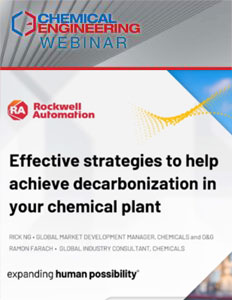
How Chemical Plants Can Reduce Time, Cost and Risk in Tote and Tank Cleaning
FREE
REGISTERCleaning tanks, totes, reactors, vessels and mixers/blenders is necessary maintenance for chemical processors. This webinar shows how it can also become an efficiency driver for your plant.
Spraying Systems Co. experts will share ways to reduce cleaning time by up to 75%, cut water usage by millions of gallons, save chemicals and energy—and recoup your investment in months if not weeks.
This webinar will demonstrate how automated equipment can improve cleaning effectiveness, reduce cost and extend equipment life. You’ll also see how to eliminate worker risk from caustic chemicals and hazardous environments.
Attendees will learn how automated cleaning of tanks, totes, reactors, vessels and mixers/blenders can:
- reduce cleaning time
- decrease cost
- cut water use significantly
- minimize chemical/ingredient use
- lower energy use
- extend equipment life
- reduce maintenance cycles and downtime
- eliminate worker risk
Anyone involved with chemical plant operations and maintenance, sustainability, productivity, safety and quality will benefit by attending this webinar.
Offered Free by: Spraying Systems Co.
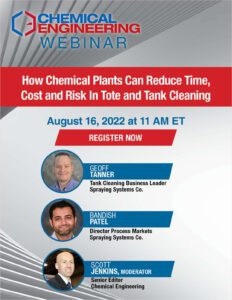
Preventing Network Breaches with Secure Vendor Access Management
FREE
REGISTERPresented as part of the Connected Plant Conference
Sponsored by: XONA
Manufacturers worldwide are adopting capabilities that allow for more remote operations. While the benefits of remote and mobile access are multifaceted, remote operations can pose new risks to critical infrastructures. When workers and third-party vendors use remote communication technologies to directly access critical OT systems, the attack surface can become increasingly complex with new vulnerabilities.
To prevent direct access to network access, manufacturers must prioritize security measures that ensure any remote vendor access is closely managed and monitored.
In this webinar, attendees will learn:
- How a zero-trust architecture immediately eliminates common attack vectors in critical infrastructures
- How components of a zero-trust architecture can make vendor access management more secure, efficient, and scalable
- How manufacturers can grant third-party vendors with temporary, controlled access to their systems
Offered Free by: Power Magazine
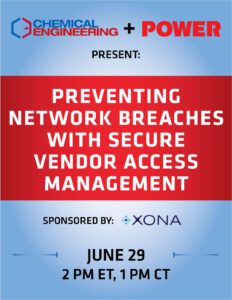
There is no better time to modernize your DCS
FREE
REGISTERAre you relying on knowledge passed from one employee to the next to run your plant? Has your control system evolved over 20-years or more? And does it span a wide range of technologies, sub-systems, standards and work processes? Perhaps it’s time to assess your Distributed Control System (DCS) and begin planning for the future and a connected chemical plant.
But you know as well as anyone that chemical processes are inherently complex. Migrating a legacy DCS is equally complicated. You need to understand the most effective ways to plan for a migration that’s going to give you a digital foundation, a foundation on which you can build for the future and optimize your operations. You need to look at innovating rather than just replicating what you’re currently using.
This webinar will help you navigate the right ways to plan your migration and help you understand how you can benefit from putting in place a digital-ready control system.
Offered Free by: Rockwell Automation

Sustainability Simplified: Easy Steps to Save Resources, Time and Money
FREE
REGISTERIncreasing your plant’s sustainable practices can yield significant results for your operations and pay for themselves in a matter of months, if not weeks. This webinar will delve into the role spray technology has in saving water, chemicals, coatings, energy, money and time. You’ll learn how to simplify sustainability, increase productivity, ensure product quality and improve worker safety on every shift.
Experts will share tips on simple ways to operate more sustainably in cleaning, coating, gas cooling and spray drying applications. Topics include right-sizing spray nozzles, reducing misting and overspray, ways to automate various operations to minimize waste and improve worker safety and how to decrease compressed air use and, in some applications, use available plant steam for atomization.
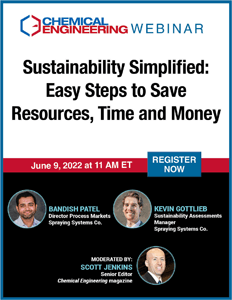
Circular Economy Benchmarking: How Do You Compare?
FREE
REGISTERRecently AspenTech® and the ARC Advisory Group conducted a study on the circular economy among industrial manufacturers. Early results indicate that complex supply chains and proven technologies are the most significant barriers to achieving circular economy goals with 75% of respondents believing digital capabilities are essential.
Join our experts, including Vice President of ARC Peter Reynolds, as they address the top challenges facing today’s industry leaders in advancing the circular economy. Topics will include:
- Key trends, comparisons and findings from the study
- Most valued digital capabilities to overcome circular economy challenges
- Other critical factors in realizing circular economy goals and successes
The webinar will also address how industry leaders in the chemicals and petrochemical industries are leveraging the circular economy and digital technology as part of an overall sustainability initiative.